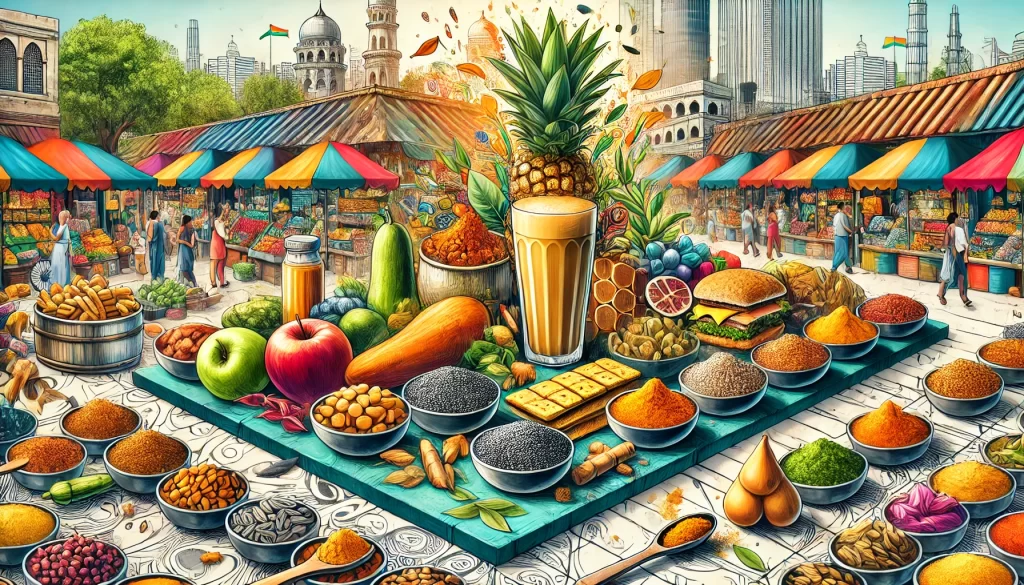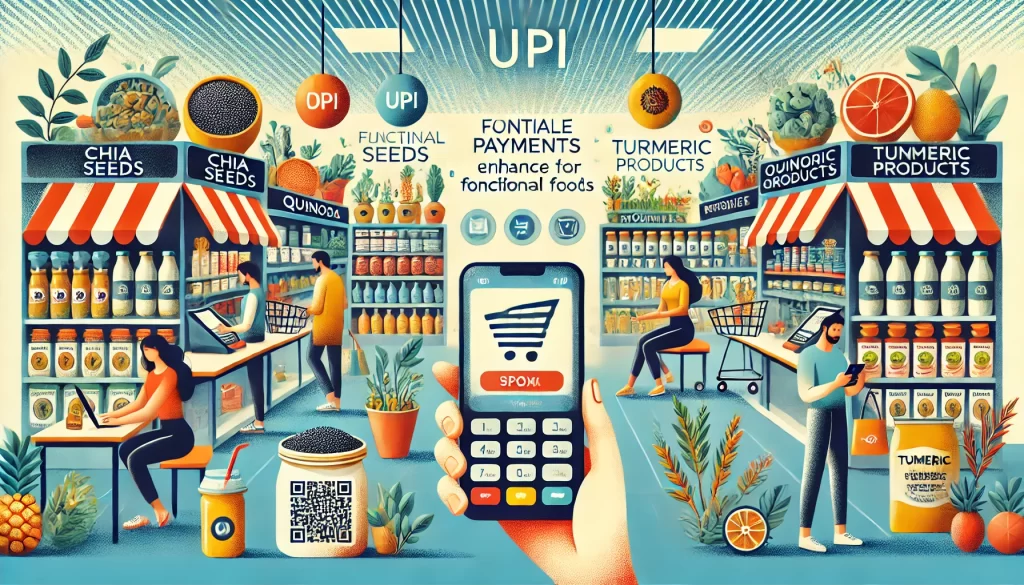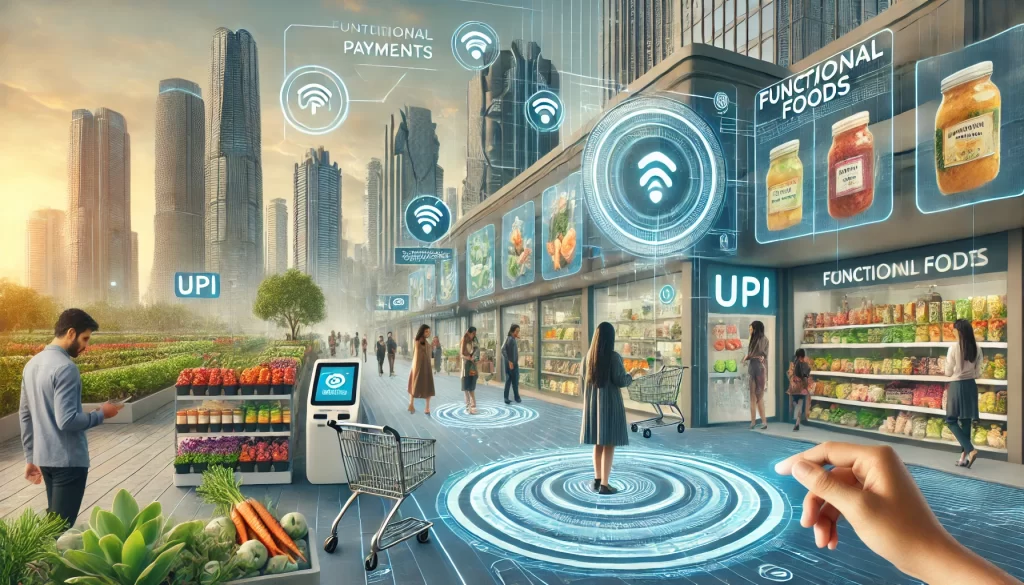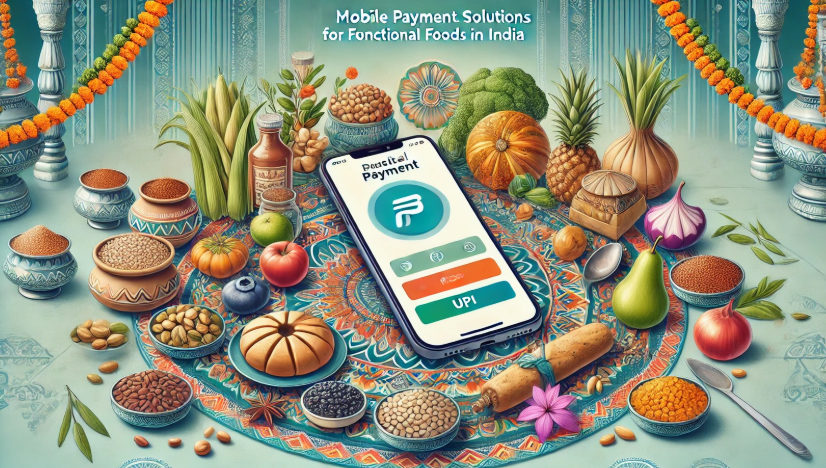AUTHOR-ELIZA FERNZ
Introduction
In India, the demand for functional foods has surged over the past few years, as consumers become more health conscious and seek foods that offer additional nutritional benefits. Functional foods, which include products fortified with vitamins, minerals, probiotics, and other health-promoting ingredients, have gained popularity due to the increasing awareness of their role in preventing chronic diseases and improving overall wellness. This growing trend is mirrored by the rapid adoption of mobile payment solutions, which are transforming the way consumers purchase food, especially functional foods.
The Growth of Functional Foods in India

The functional foods market in India has experienced exponential growth, driven by factors such as increasing health awareness, rising disposable incomes, and a shift in dietary habits. Functional foods are typically enriched with nutrients that help in disease prevention, weight management, improved digestion, and overall wellness. Popular categories of functional foods in India include probiotic-rich yogurt, fortified snacks, organic food, energy bars, and supplements. As consumers seek to prevent lifestyle diseases like diabetes, hypertension, and obesity, functional foods have become an integral part of their diet.
The Rise of Mobile Payment Solutions in India
Mobile payments(1) have revolutionized how consumers conduct transactions in India. With the advent of smartphones and the widespread adoption of mobile payment apps, digital wallets, and UPI (Unified Payments Interface), India has witnessed a financial technology (FinTech) boom in recent years. According to a report by the National Payments Corporation of India (NPCI), UPI transactions in India crossed 9 billion in 2023, and the number of mobile wallet users has also grown significantly.
How Mobile Payments Enhance The Functional Foods Shopping Experience

Convenience and Accessibility
One of the key benefits of mobile payment solutions is convenience. Consumers can now pay for functional foods in a matter of seconds, whether they’re shopping in a brick-and-mortar store or browsing an e-commerce platform. Mobile payments eliminate the need for physical cash or credit/debit cards, reducing friction in the purchasing process.
Faster, Contactless Payments
The COVID-19 pandemic accelerated the global shift toward contactless payments(2). In India, mobile payments have become a preferred mode of transaction due to their contactless nature, which reduces the risk of virus transmission. Consumers who are particularly health-conscious and looking to boost their immunity with functional foods prefer paying through mobile apps to avoid physical contact.
Access to Online Markets and E-commerce
India’s e-commerce sector has seen explosive growth, and it has become a crucial channel for purchasing functional foods. From organic supplements to protein-enriched snacks and vitamins, many health-conscious consumers are turning to online platforms for their functional food needs. Mobile payment solutions(3) play a pivotal role in this space by facilitating easy, secure, and fast transactions.
Increased Security and Trust
In the context of mobile payments, security is a critical concern. The Indian government and mobile payment service providers have prioritized safety by implementing advanced security measures such as two-factor authentication, encryption, biometric verification, and fraud detection systems. As the functional food market often deals with premium products, which require consumer trust, mobile payment solutions offer an additional layer of security for both customers and businesses.
Personalization and Data Insights
Mobile payment platforms gather vast amounts of data about consumer preferences, shopping behaviors, and spending patterns. For businesses in the functional foods sector(4), this data is invaluable for personalizing offerings and marketing efforts. For example, if a customer frequently buys protein supplements or gluten-free snacks, businesses can use this information to send personalized promotions or recommendations for related products.
The Future of Mobile Payments and Functional Foods in India

The future of mobile payments in India is bright, with several emerging trends expected to shape the functional food market. As mobile payment solutions continue to evolve, consumers can expect even more seamless and personalized experiences. For instance, the integration of artificial intelligence (AI) and machine learning (ML) could enable mobile payment apps to offer tailored product suggestions, real-time discounts, and even personalized health tips based on purchasing behavior.
The rise of blockchain technology also promises to enhance transparency and trust in the food industry. By using blockchain, businesses can verify the authenticity of functional food products(5), ensuring that consumers get what they pay for. This could become especially important for premium functional food items, where consumers are looking for transparency in sourcing and quality.
Conclusion
Mobile payment solutions are playing a pivotal role in the growth of the functional foods market in India. As more consumers seek convenient, healthy food options, digital payment methods provide a seamless and secure way to purchase functional foods both online and offline. These solutions offer numerous benefits, from faster transactions and enhanced security to personalized experiences and loyalty rewards. For businesses in the functional food sector, integrating mobile payment solutions is essential in the digital age.
FAQs
1. What are functional foods?
Functional foods are foods enriched with nutrients or ingredients that offer health benefits beyond basic nutrition, such as fortified snacks, probiotics, and protein bars.
2. How do mobile payment solutions work in India?
Mobile payments in India are made through apps like Google Pay, Paytm, PhonePe, and UPI. Consumers link their bank accounts or cards and pay by scanning QR codes, entering mobile numbers, or using contactless methods.
3. Why are mobile payments popular in India?
Mobile payments are popular due to the widespread use of smartphones, affordable data, and government initiatives like “Digital India.” UPI enables instant and secure transactions, making it easy for people to pay.
4. How do mobile payments benefit consumers buying functional foods?
Consumers enjoy convenience, quick and contactless transactions, loyalty rewards, and easy access to online markets, making it easier to purchase functional foods both in-store and online.
5. How do mobile payment solutions benefit businesses?
Mobile payments help businesses by increasing sales, reducing transaction costs, offering customer insights, and reaching a wider audience both online and offline.

